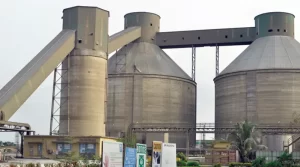
Market Dynamics:
Lafarge Africa, with a production capacity of 10.5 million metric tons annually across its four plants, has faced stiff competition from local players. Despite increased net sales, the company reported a slight decline in profits last year, reflecting broader economic challenges such as currency depreciation and rising operational costs
The Nigerian cement market, driven by construction demand and infrastructure projects, has also witnessed a surge in prices. Cement now costs between ₦8,000 and ₦9,500 per 50kg bag, a significant increase from ₦4,000 a year ago. This price hike, attributed to factors like exchange rate volatility, has created room for new players like Huaxin to penetrate the market and introduce competitive strategies
Strategic Implications – Holcim’s Exit and Huaxin’s Entry
Swiss multinational Holcim’s decision to divest its Nigerian operations, including Lafarge Africa, aligns with its global strategy of focusing on high-growth markets. of Lafarge Africa, valued at approximately $1 billion, solidifies its presence in the African continent and provides a strong foothold in Nigeria’s burgeoning construction industry.
The acquisition of Lafarge Africa aligns with Huaxin Cement’s global expansion strategy, which previously saw it acquire Holcim’s operations in Zambia. In Nigeria, Huaxin plans to capitalize on the rising demand for construction materials while potentially increasing Lafarge Africa’s market capitalization if the company remains listed on the Nigerian Exchange (NGX)
Impact on Competitors
With Dangote Cement generating over ₦2.5 trillion in revenue this year and BUA Cement seeing exponential growth, the entry of Huaxin is expected to intensify competition. The entry of a major global player like Huaxin is expected to intensify competition in Nigeria’s cement market. Dangote Cement and BUA Cement have long enjoyed dominant positions, but Huaxin’s acquisition of Lafarge Africa introduces a formidable competitor with significant resources and expertise. Market analysts predict price wars, innovations in product offerings, and investments in technology and infrastructure as key areas of contention
Potential Benefits for Nigeria
Huaxin’s investment in Nigeria could bring several benefits to the country’s economy. Increased competition may lead to lower cement prices, benefiting consumers and construction projects. Additionally, Huaxin’s advanced technology and operational efficiency could contribute to the modernization of Nigeria’s cement industry.
Additional Considerations:
- Regulatory Environment: Huaxin will need to comply with Nigerian regulations, including environmental standards and labor laws.
- Infrastructure: A robust infrastructure, including transportation and logistics, is crucial for efficient distribution of cement.
- Currency Exchange Rate: Fluctuations in the exchange rate between the Nigerian Naira and the Chinese Yuan could impact Huaxin’s operations and profitability.
- Local Partnerships: Building strong relationships with local suppliers, distributors, and stakeholders can enhance Huaxin’s market position.
Challenges Ahead:
Huaxin Cement will face significant challenges, including adapting to Nigeria’s regulatory framework and managing the high cost of raw materials and logistics. Moreover, the depreciating naira and persistent inflation could impact profitability, making operational efficiency a critical success factor
This acquisition marks a pivotal moment for Nigeria’s cement industry. With Huaxin Cement entering the fray, the established dominance of Dangote and BUA Cement faces disruption. While the deal holds promise for increased competition and potentially stabilizing prices, its success depends on Huaxin’s ability to navigate Nigeria’s complex business environment effectively.

